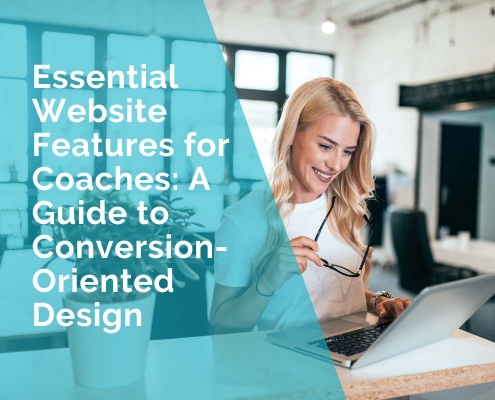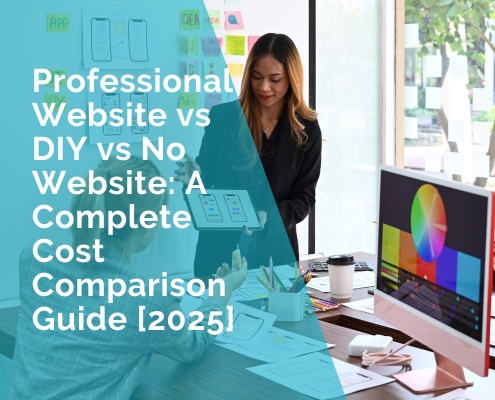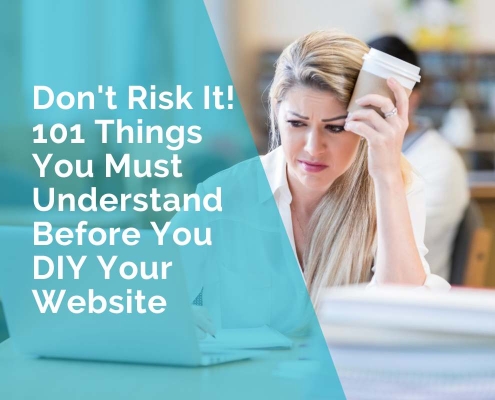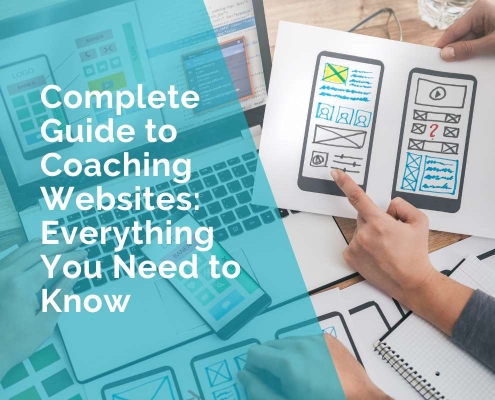5 Essential Steps to Building a Professional Website for Your Business
If you want to grow and establish your online presence, you need to ensure you have a professional website. Having an online presence is no longer just a trend, it has become a requirement since more and more people are doing business online.
Plus, having a professional website gives business owners the freedom to build trust with their audience and create a solid digital presence and foundation to establish a competitive edge.
It doesn’t matter if you are a small business or an established one. The most important thing is that you put effort into making a good website that will set you up for long-term success.
Below are five essential steps you can take to build a professional website:
Choose and Register Your Domain Name
The very first step to build your business’s online presence is to select and register a domain name. Your domain name is more than just an address—it’s a critical part of your brand’s identity. Make sure that your domain name is memorable and relevant to your brand so that it is easier for potential customers to find you.
You must remember that it’s very important to register the domain name asap or else you risk losing it to someone else. You can find domain registration services to help you with this. They can streamline the process and help you secure your domain quickly.
Waiting is often a mistake and could cost you both time and money, especially if your competitor snatches the domain.
In addition to domain registration, you must also consider the value of attaching professional email addresses to your domain. This helps boost your brand’s credibility and guarantees consistency across all communications.
Select the Right Web Hosting Service
Selecting the right web hosting provider is also an important step. Your hosting provider will store your website’s files and make them accessible to visitors. Never make the mistake of choosing a poor hosting service, as this can lead to slow page loading times and frequent downtime. Both of these can negatively affect user experience and search engine rankings.
When you are choosing a hosting provider, consider factors such as server speed, customer support, uptime, and scalability. Otherwise, you might encounter more problems down the line that could negatively affect your business’s conversion rate.
Choose Your Website Platform
The next important decision you need to consider is determining which platform you will use to build your website. For a lot of businesses, a content management system (CMS) such as WordPress is a popular choice because it’s flexible and has a wide range of plugins.
Alternatively, people who do not have extensive experience and knowledge in terms of building a website can use user-friendly website builders. Website builders that have drag-and-drop functionality, customizable templates, and seamless integration are definitely the go-to option for website owners who do not have the budget to spend a lot of money on building a website and those who want to simply put their visions to life themselves.
No matter which platform you choose, make sure that it definitely aligns with your website’s long-term needs. This way, you will be able to take full advantage of it as your business scales.
Design Your Website for User Experience and Functionality
Aside from being visually appealing, a professional website also needs to offer a seamless user experience. This involves intuitive navigation, clear calls to action, and fast load times. When you are designing your website, you must make sure that it is mobile-friendly. Otherwise, your website might not rank high on search engines.
Prioritize Security and SEO
Lastly, make sure that you prioritize SEO and security. Making sure that your website has an SSL certificate helps protect user data and gives visitors peace of mind since they know their information is safe.
In terms of SEO, making sure that your website ranks high on search engines guarantees better visibility. Always make sure that your website adheres to SEO best practices like optimizing meta tags, using relevant keywords, and creating quality content. This will help boost organic traffic on your website.
Building a website is a multi-step process. You must make sure that you plan and execute carefully. After all, your business’s conversion rate will be significantly influenced by how well your website performs.
***
Karl Oscarsson












